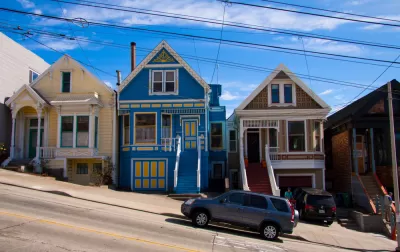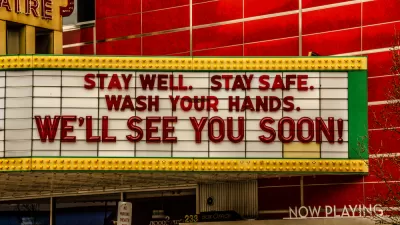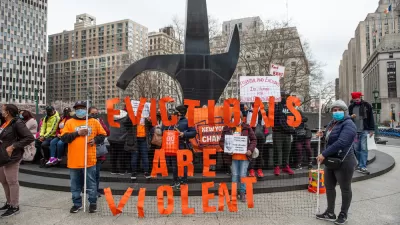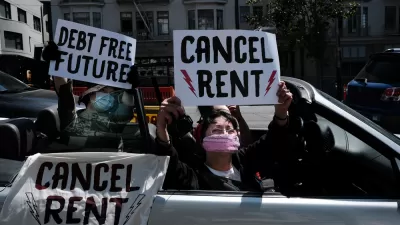Declining rents won't be a silver lining in the post-pandemic housing crisis.

Before the pandemic, millions of Americans were struggling to pay rent and home ownership was a distant dream for more and more young Americans, and nothing about the economic outcomes of the pandemic have improved the prospects of the housing market. According to an article by Jake Blumgart, the coronavirus pandemic is worsening the pre-existing housing crisis for Americans living in expensive cities.
Building could slow down in the medium term, as construction loans (risky bets in the best of times) become harder to come by. Unsubsidised affordable housing is often owned by small landlords, who are more likely to struggle during recessions, prompting flips to home ownership or sales to rental empires.
For more insight into the pandemic's effect on the pre-existing housing affordability crisis, Blumgart interviews New York Times reporter Conor Dougherty, who released a book, Golden Gates, on the causes of the housing crisis just prior to the outbreak.
One particularly insightful section of the interview discusses the different kinds of housing crisis facing different cities. According to Dougherty, "There are the really out of control, fast-growing, rich cities: the Bay Area, Seattle, New York. There are declining Detroits and Clevelands, usually manufacturing-centric cities. Then there are sprawling Sun Belt cities."
Much of the interview, like Doughery's book, focuses on cities in that first group. As for Dougherty's opinion about what some of these prosperous cities will look like after the pandemic, and whether the predictions of an urban exodus will come to fruition, Dougherty stops short of making a prediction, and instead raises several salient questions.
If unemployment remains over 12% in San Francisco, yes, rent is going to be a lot cheaper. But is that really the reality we're all looking for? If restaurants and bars that were key to the city's cultural life remain shut, but rent is cheaper, is that what everyone wants? I bet you when this is all over, we're going to find out the tech people left at a much lower rate than others. Yes, they can all work from home, but what do you think has a bigger impact on a city: a couple of companies telling people they can work from home or the total immolation of entire industries basically overnight?
FULL STORY: How the pandemic is magnifying structural problems in America's housing market

Planetizen Federal Action Tracker
A weekly monitor of how Trump’s orders and actions are impacting planners and planning in America.

Maui's Vacation Rental Debate Turns Ugly
Verbal attacks, misinformation campaigns and fistfights plague a high-stakes debate to convert thousands of vacation rentals into long-term housing.

San Francisco Suspends Traffic Calming Amidst Record Deaths
Citing “a challenging fiscal landscape,” the city will cease the program on the heels of 42 traffic deaths, including 24 pedestrians.

Amtrak Rolls Out New Orleans to Alabama “Mardi Gras” Train
The new service will operate morning and evening departures between Mobile and New Orleans.

The Subversive Car-Free Guide to Trump's Great American Road Trip
Car-free ways to access Chicagoland’s best tourist attractions.

San Antonio and Austin are Fusing Into one Massive Megaregion
The region spanning the two central Texas cities is growing fast, posing challenges for local infrastructure and water supplies.
Urban Design for Planners 1: Software Tools
This six-course series explores essential urban design concepts using open source software and equips planners with the tools they need to participate fully in the urban design process.
Planning for Universal Design
Learn the tools for implementing Universal Design in planning regulations.
Heyer Gruel & Associates PA
JM Goldson LLC
Custer County Colorado
City of Camden Redevelopment Agency
City of Astoria
Transportation Research & Education Center (TREC) at Portland State University
Jefferson Parish Government
Camden Redevelopment Agency
City of Claremont





























